November 24, 2013 at 7:19 pm
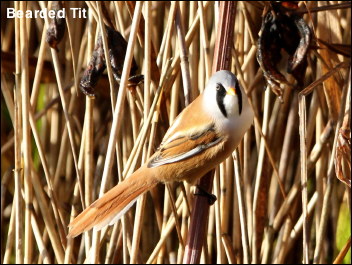
Having visited Leighton Moss once this Autumn and failed to even see Bearded Tits I could not resist another go in the quest to film a bird I have never filmed before and only seen once. Conditions were perfect but after standing around for two hours I was already expecting another blank day. However, calls in the reeds meant a party were about to grit in the trays erected especially for them. Within a minute they appeared out of the reeds and presented quite a challenge to capture shots as they darted backwards and forwards on and off the trays. There are so few of them at Leighton Moss that most birds have been individually marked with colour rings to enable visual identification through binoculars. The birds take their name from the facial markings that the males possess and I managed to film one without rings in full sunshine which now highlights this week’s blog . Click here
In the garden this week the female Great Spotted Woodpecker has been feeding daily. Better still was a brief visit on the feeders on the 23rd of a male Brambling, the first we have seen in the garden for a few years
November 17, 2013 at 7:11 pm
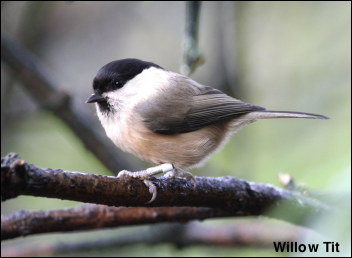
Last Sunday, after a clear and frosty night, I made an early morning visit to Pennington Flash. Although there was not much bird life about the colours were absolutely superb with mirror reflections of the reeds in the calm water. Apart from five Whooper Swans on the main area of water I spent most of my time at the baited site. Despite this area being deep in shadow I managed to obtain shots of Willow Tits and Bullfinches of which there were at least five of each feeding. Click here. Also present was a Nuthatch, Reed Buntings and at least six Stock Doves.
On the Twelfth I saw my first Fieldfares of Winter as forty were going to roost in an Oak tree, that was still in leaf on Hopwood. Near Heywood on the fifteenth I flushed my first wintering Woodcock, both dates being exceptionally late for these two species. The number of Goosanders around is also very low with only six present on Rhodes Lodges on the thirteenth whereas in previous years there would have been more than sixty present by now.
November 10, 2013 at 7:43 pm
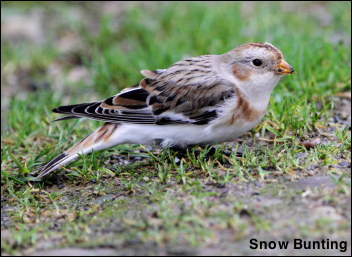 It is ironic that even in the wildest of the weather that Islay threw at us last week the best bird turned up in the car park of Islay’s remotest cafe. As we drove onto the gravel at Sanaigmore in anticipation of a much needed coffee a Snow Bunting flew up onto the wall. The camera was on the back seat ready for action and the Snow Bunting performed so well that we returned the following day for another session ( and another coffee) and it was there ready to greet us. It is an iconic bird of the high Arctic and I would love to know where it bred last Summer. Perhaps it was only as far North as Iceland? Click here for photos.
It is ironic that even in the wildest of the weather that Islay threw at us last week the best bird turned up in the car park of Islay’s remotest cafe. As we drove onto the gravel at Sanaigmore in anticipation of a much needed coffee a Snow Bunting flew up onto the wall. The camera was on the back seat ready for action and the Snow Bunting performed so well that we returned the following day for another session ( and another coffee) and it was there ready to greet us. It is an iconic bird of the high Arctic and I would love to know where it bred last Summer. Perhaps it was only as far North as Iceland? Click here for photos.
Since returning home I have still not encountered any Fieldfares or migrant Woodcock. In the garden three Bullfinches have returned to feed along with a Song Thrush. A trip back to the river Ribble failed to locate any jumping Salmon and the run might now be over for this year.
November 4, 2013 at 7:36 pm
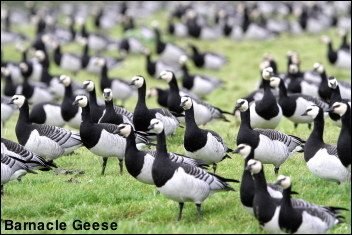
Islay in October is always wild but this years weather was in the extreme. Gales and torrential rain prevailed and our walks had to be undertaken in-between the showers, with fingers crossed. Despite this the spectacle of 50000 Barnacle Geese on one Hebridean island is not to be missed and regarded by many as the finest bird spectacle in Europe at this time of the year. In addition during October Whooper Swans migrate South from Iceland through Islay and to be stood on the North coast of Islay as these swans appear, having flown 500miles non stop from Iceland, is quite special. Click here for photos of our Islay visit.
Any visitor to Islay cannot fail to be impressed with its raptors and whilst most are reluctant to fly in the wind and rain we had sightings of most of them with the exception of Kestrel! Merlin and Hen Harriers are seen daily and you never know what is around the next corner be it a Golden Eagle or a Sea Eagle.
With spectacular seas and low tides conditions were not ideal for finding Otters and we encountered only one which in true Otter fashion disappeared after only a few minutes.
October 25, 2013 at 7:07 pm

I have never gone looking for Salmon before but after a day of heavy rain on the 23rd there followed a superb Autumn day on the 24th so I knew that if Salmon were going to come up the Ribble they would be in the right position to jump the falls at Settle that day. It worked perfectly and during the two hours I was present I reckon at least twenty Salmon tried to leap the falls but only eight succeeded in reaching the next level. Unfortunately never having taken the camera before I did not realise how close the falls would be and my 300mm lens was too big giving me some wonderful shots of Salmon with no head or tail on! Even after forty three years you never stop learning.
During the week we had a short walk at Ogden and had good views of Little Owl and fourteen Goosander. Click here for gallery I still have not had any sightings of Fieldfare.
The number of birds feeding in the garden has been increasing all week and peaked at ten House Sparrows, fourteen Goldfinches and twelve Greenfinches.
October 20, 2013 at 1:51 pm
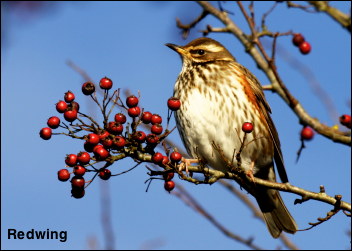
The first Redwings of Winter appeared on Hopwood on the 12th with three separate parties totalling twenty eight birds. This paled into insignificance in comparison to how many passed over Winter Hill during an eight hour watch on the same day by three birdwatchers when more than nine thousand three hundred were recorded. Clearly the South East wind had brought them in from Scandinavia and virtually all were heading in a North West direction.
The acorn crop this Autumn has provided rich pickings for Jays and their raucous calls resound through the colourful woodlands. Another Autumn visitor is the Woodcock and whilst I have not seen one locally this Autumn on the 18th one flew in front of my car on a country road near Lancaster at dusk, as I was on my way to give a filmshow. They feed nocturnally in the fields and this was almost its last flight! Click here for this week’s gallery







